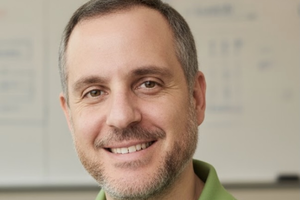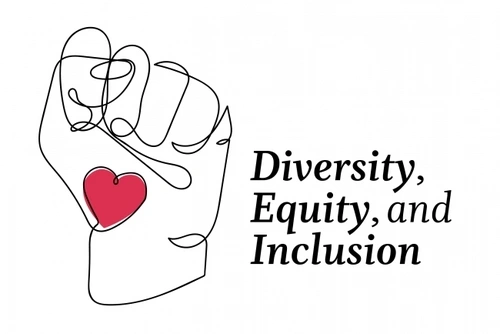
by Lini S. Kadaba
In this time of a national awakening and reckoning about race, inequality, and long-overdue social justice, efforts to value diversity, promote equity, and foster inclusive environments have gained renewed attention. Here, four Penn GSE alumni share how they are striving to advance these areas through their roles at an education nonprofit, a middle school, a state university, and a tech company. These leaders report drawing upon their life experiences and insights gained at Penn GSE as they undertake the complex work of cultivating opportunity and support for students and employees.
Creating Paths to College and Career Success
In the nearly ten years that Sean E. Vereen, GED’00, GRD’05, has led Philadelphia-based Steppingstone Scholars as president, the organization has expanded its mission from providing academic enrichment and school placement to creating multiple routes to success in college and the workforce. The aim of the educational social mobility organization remains the same—to overcome systemic barriers and change outcomes for low-income and racially minoritized Philadelphia students.
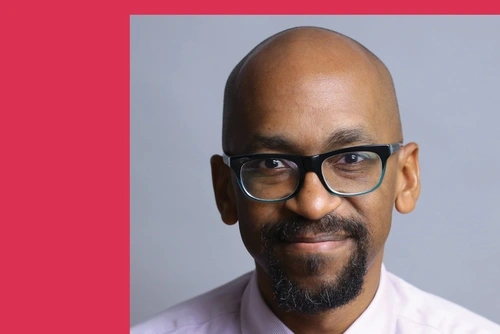
“If we’re going to move people out of poverty in the city, we’ve got to tie the education piece and the career piece together,” says Dr. Vereen, who previously spent a decade at Penn in diversity and minority affairs roles, including associate dean for opportunity and access.
Over his tenure at Steppingstone, he reports, the nonprofit has grown to serve 2,500 students, up from about two hundred, and has quadrupled its budget. In addition, Steppingstone has added two new initiatives for college and workforce preparation: Steppingstone Pathways, which places staff at Philadelphia public, charter, and magnet schools; and Steppingstone Ventures, an innovation hub. As part of Ventures, a five-year collaboration called Inveniam launched between Steppingstone and Penn’s School of Engineering and Applied Science this fall. The STEM equity and innovation program will offer Penn-developed online modules to supplement high school classroom instruction for an Advanced Placement computer science course. Inveniam aims to enroll three thousand Philadelphia students in the course and later to provide similar support for advanced math and physics courses.
“There is a financial cost to not serving the kids in this city,” Vereen argues. “We’re not just doing this because it’s morally right—which it is—but also because it’s going to make a better city and better opportunities for all of us.”
Central to Vereen’s vision is a commitment to providing advising and academic preparation to help Black and Brown students access and navigate high-performing high schools and colleges. Despite institutional commitments to inclusion for underrepresented groups, he notes, student access and experiences continue to vary in relation to demographic factors. Vereen’s dissertation in Penn GSE’s Higher Education Ed.D. program focused on how leaders of college resource centers for minoritized students navigated racial and class biases on campus. He continues to examine issues of inclusion at Penn GSE, where he teaches the course “Access and Choice in Higher Education.”
“There is a financial cost to not serving the kids in this city. We’re not just doing this because it’s morally right—which it is—but also because it’s going to make a better city and better opportunities for all of us.”
As calls for social justice resound across the nation, Vereen’s response is to reach higher, by expanding the number of students Steppingstone serves and boosting internship and scholarship opportunities. He also places trust in the importance of persistence. “Everything in education takes a long time,” says Vereen. “Making change is about focusing and being nimble enough to respond to what’s happening in the world by bringing our ideas into different spaces.”
Collaborating to Celebrate Differences and Disrupt Systems
As principal since 2008 of University Neighborhood Middle School (UNMS) on the Lower East Side of Manhattan, Laura Peynado Castro, GRD’21, has long focused not on student deficits, but on student assets—a philosophy at the core of her commitment to educational equity. “I’ve always been curious about what spaces we are creating to build on the strengths and the knowledge that students bring to our community,” says Dr. Peynado Castro. She is grateful for teachers who did the same for her. At age twelve, Peynado Castro emigrated with her family from the Dominican Republic to New York City and attended public schools. “I had teachers who saw what I brought to the table,” she says.
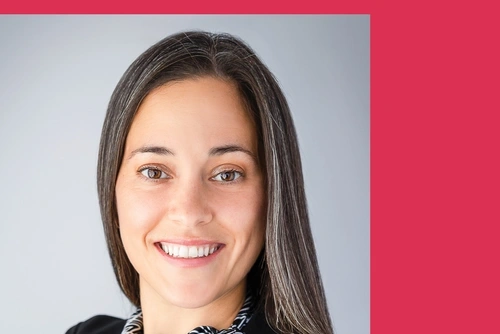
Of the nearly two-thirds of UNMS students who are Hispanic or Latinx, many are Dominican immigrants. “The practices of Dominican youth, like those of many other immigrant groups, remain invisible in the field of research,” says Peynado Castro. Working with UNMS alumni, Peynado Castro aimed to address this gap with a dissertation about literacy development for Penn GSE’s Mid-Career Doctoral Program in Educational Leadership. Her project documented the value of the transnational and bilingual perspectives that Dominican students bring to the analysis of a text’s language, biases, and power dynamics.
Through the project, she says, “I have become more intentional about my role as a co-creator and co-facilitator of spaces and opportunities that celebrate differences, embrace our humanity, and disrupt systems of inequity, within and outside our school community.” Her efforts include a multitude of avenues for “courageous conversations” at UNMS about race and social justice: community forums; reflection time and professional development for teachers; weekly small-group meetings that invite students to inform decision making; and a family book club that recently discussed Bettina L. Love’s book We Want to Do More than Survive: Abolitionist Teaching and the Pursuit of Educational Freedom and met virtually with the author. Peynado Castro describes her approach to leadership as reflective, collaborative, and rooted in her experience at Penn GSE.
“I have become more intentional about my role as a co-creator and co-facilitator of spaces and opportunities that celebrate differences, embrace our humanity, and disrupt systems of inequity.”
She has bolstered the quality of education at UNMS by partnering with local community organizations and institutions like New York University for academic and summer enrichment and Hunter College for teacher training. Always, she says, she strives to remain grounded in the realities of students’ lives. To her, equity means making sure students have the conditions and resources to learn; inclusion means offering learning experiences that put students’ perspectives at the center while embracing difference and humanity.
“Penn GSE affirmed some of the beliefs I had about my role as a leader, to lead by example,” she adds. “I have to constantly check my biases, seek feedback, challenge myself, get to know people, not make assumptions. It’s not about me, but the work—what we’re trying to do together with love.”
Advocating to Strengthen a Workforce
Becci Menghini, GRD’14, wrote her doctoral dissertation at Penn GSE on crisis management at public universities. Seven years later, she says she could “write a few more chapters. I think I’m living my dissertation day in and day out.”
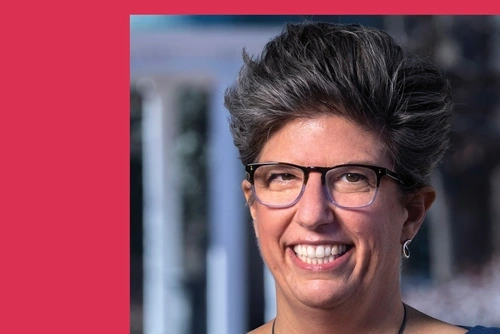
In January 2020, Dr. Menghini became the vice chancellor for human resources and equal opportunity and compliance at the 25,000-employee University of North Carolina-Chapel after serving in an interim capacity. Typically, her office manages human resources policies and handles related complaints. She says the issues of the times—a pandemic, a social justice movement, and a nation divided—have added to the challenges of her role. Events at UNC-Chapel Hill concerning a Confederate statue, campus reopening plans, and an attempt to hire Pulitzer Prize–winning journalist Nikole Hannah-Jones have made headlines and prompted many alumni, faculty, staff, and students to raise concerns about the state legislature’s role in university governance.
“People in positions of leadership sit in a very delicate and precarious spot in thinking about how they respond to national events in this moment,” she says. While Menghini notes that taking action is complicated by the fact that UNC is a public university beholden to its state legislature, she reports she is making headway in addressing pressing concerns. “Diversity is an enormous part of my job,” she says. “We depend on a diverse workforce, and only when we are fully diverse—not just in numbers, but when everybody has the ability to be fully themselves and fully present—can we benefit wholly and do our best work.”
“People in positions of leadership sit in a very delicate and precarious spot in thinking about how they respond to national events in this moment.”
To build trust, Menghini spends time listening to campus constituencies, including affinity groups such as the Carolina Black Caucus. She also has shifted diversity and inclusion from her division to the Provost’s Office, where a new chief diversity officer was recently hired. “The notion that the diversity office sat in the same place as compliance didn’t sit well,” she says. “It didn’t say what we wanted it to say.”
Menghini credits the cohort model of Penn GSE’s Executive Doctorate in Higher Education Management program with giving her a lasting peer network and inspiring her approach to workplace trainings and orientations. “There are benefits to being treated like a cohort—employees can gain built-in mentorship and a sounding board,” she says.
Currently, she is grappling with equity around flexible work schedules. A pilot is allowing some departments to work remotely. But, she asks, is that equitable—especially when housekeeping or dining room staff, among the lowest-paid employees, must come to campus? Will remote workers, often women, miss out on mentorship or promotion? For these reasons, Menghini places importance on assessment structures to gauge the effect on equity. Ultimately, she says, “I see my role as one of advocacy, looking at the broad impact.”
Shaking Up Approaches to Move the Needle
Over her career, Jessica Guerrero, GED’09, has held multiple roles at higher education institutions while maintaining a single goal—to provide access to people of color. Now global head of diversity, equity, and inclusion for Google’s Cloud Go-to-Market (GTM) division, she works from a New York office to manage a bevy of teams that drive strategy and share best practices with client companies.
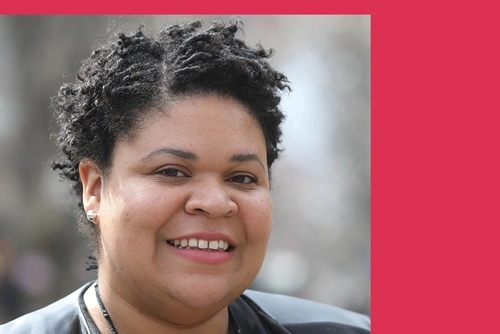
“My heart lies in this work,” says Guerrero. Her passion springs not only from her lived experiences, but also from her first job at Penn’s Netter Center for Community Partnerships, where she worked for a college access program while pursuing her master’s degree in higher education at Penn GSE.
“I grew up believing that education was the great equalizer,” she says. Through her work at the Netter Center, however, she saw the hurdles marginalized communities faced in gaining access to college—from obtaining college preparation and advising, to meeting financial requirements, to finding a sense of belonging on campus. In class at Penn GSE, her eyes were further opened to inequities even as she learned about alternative models and envisioned “what could be possible if universities and even K–12 institutions were redesigned to be places where everyone could thrive.”
After working in diversity roles at Princeton University and New York University, she returned to Penn as senior associate director of diversity at the Wharton School. There she served on the MBA admissions committee, advocating for students she had recruited. Having joined Google in 2020, she aims to effect change for the 14,000 employees of Google Cloud GTM, which offers an array of computing services in areas such as storage, data, security, and communication.
“What could be possible if universities and even K–12 institutions were redesigned to be places where everyone could thrive?”
“Google is a pioneer that is shaking up the workplace and shaking up diversity,” Guerrero says. One innovation she rolled out offers micro training modules—30 to 45-minute sessions—that use virtual reality in partnership with Praxis Labs to explore workplace scenarios pertaining to diversity, equity, and inclusion. Already, she says, employee interest is high and behavioral changes have occurred within teams. Guerrero also is changing up the content of training to include what she calls the how—“how to be allies, how to run inclusive hiring practices, how to think about culture when putting a team together.”
In her role, she focuses on “opening different thinking pathways”—for instance, arguing that the company could increase the number of women hired as engineers by recruiting from a wider range of colleges. It’s a case she makes with data, grateful for time spent at Penn GSE learning “to look at data, make sense of it, and construct strong arguments.”
For Guerrero, that focus on data makes her target clear: she strives for documented impact, to produce “actionable items that can be measured over time that move the needle.”
This article appeared in the Fall 2021 issue of The Penn GSE Magazine.



